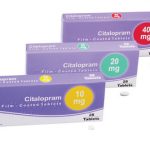Is Seroquel A Controlled Substance?

The term “controlled substance” can refer to a wide range of drugs and chemicals, including prescription medications, illicit drugs, and certain chemicals used in manufacturing or research. In the United States, controlled substances are classified into five schedules based on their potential for abuse and dependence, as well as their accepted medical uses. These schedules are defined in the Controlled Substances Act (CSA) of 1970 and are as follows:
Schedule I: These substances have a high potential for abuse and no accepted medical use. Examples include heroin, LSD, and marijuana (in some states).
Schedule II: These substances also have a high potential for abuse but have accepted medical uses. Examples include opioids such as fentanyl, oxycodone, and hydrocodone, as well as stimulants such as Adderall and Ritalin.
Schedule III: These substances have a lower potential for abuse than Schedule II drugs and have accepted medical uses. Examples include anabolic steroids, some codeine-containing cough medicines, and some depressants such as ketamine.
Schedule IV: These substances have a lower potential for abuse than Schedule III drugs and have accepted medical uses. Examples include benzodiazepines such as Xanax and Valium, as well as some sleep aids such as Ambien.
Schedule V: These substances have the lowest potential for abuse and have accepted medical uses. Examples include certain cough medicines containing codeine or diphenoxylate, as well as some anticonvulsants.
What is Seroquel?
Seroquel is a brand name for the medication quetiapine. It is an atypical antipsychotic drug that is primarily used to treat certain mental health conditions, including schizophrenia, bipolar disorder, and major depressive disorder (as an adjunct treatment). Seroquel works by affecting the levels of certain neurotransmitters in the brain, including dopamine and serotonin, which are involved in regulating mood, behavior, and cognition.
In addition to its primary use in treating mental health conditions, Seroquel is also sometimes prescribed for off-label uses, such as to treat insomnia, anxiety, or post-traumatic stress disorder (PTSD). However, the use of Seroquel for these purposes is controversial, as the drug can have significant side effects and potential risks, especially when used long-term or in high doses.
Seroquel is available in both immediate-release and extended-release formulations, and it is usually taken orally in tablet form. The dosage and duration of treatment with Seroquel will depend on the individual’s condition and response to the medication, and it should always be prescribed and monitored by a licensed healthcare provider.
According to a report by the IQVIA Institute for Human Data Science, in 2020, Seroquel was the 27th most prescribed medication in the United States, with over 14 million prescriptions. However, it’s important to note that this number includes all indications for Seroquel, not just mental health conditions.
Seroquel is also widely prescribed in other countries. In the United Kingdom, it was the 16th most prescribed medication in 2019, with over 7 million prescriptions. In Canada, it was the 33rd most commonly prescribed medication in 2019, with over 2 million prescriptions.
Is Seroquel A Controlled Substance?
Yes, Seroquel is a controlled substance in some countries. In the United States, it is classified as a Schedule IV controlled substance by the Drug Enforcement Administration (DEA), which means that it has a low potential for abuse relative to drugs in Schedule III and higher, but it still carries some risk of dependence or misuse.
In other countries, such as Canada and the United Kingdom, Seroquel is not classified as a controlled substance. However, the specific classification of Seroquel may vary depending on the country’s drug laws and regulations. It’s always best to check with your local drug enforcement agency or healthcare provider for specific information regarding the classification of Seroquel in your area.
Reasons for Seroquel Regulation
The regulation of Seroquel serves several important purposes. First and foremost, it aims to prevent the abuse and misuse of these drugs, which can lead to addiction, overdose, and other negative health outcomes. By controlling the distribution and use of these substances, governments can help to reduce the availability of these drugs and limit their impact on society.
Secondly, the regulation of controlled substances like Seroquel helps to ensure their safety and efficacy. Many controlled substances are powerful drugs that can have serious side effects or interactions with other medications. By regulating their use, governments can help to ensure that these drugs are used appropriately and safely.
Thirdly, the regulation of controlled substances helps to prevent the diversion of these drugs for illicit purposes. Illicit drug trafficking is a major problem in many parts of the world, and the diversion of prescription medications can contribute to this problem. By controlling the distribution and use of these drugs, governments can help to reduce the supply of illicit drugs and limit their impact on society.
Implications for Users and Distributors
The regulation of controlled substances has several implications for those who use or distribute these drugs. For users, it means that obtaining and using these drugs like Seroquel may be more difficult and more expensive than other drugs. Many controlled substances require a prescription from a licensed healthcare provider, which can be time-consuming and costly to obtain.
In addition, users of controlled substances may face legal consequences if they are caught in possession of these drugs without a valid prescription. Depending on the drug and the circumstances, these consequences can range from fines and probation to imprisonment.
For distributors, the regulation of controlled substances means that they must comply with a variety of rules and regulations regarding the storage, distribution, and dispensing of these drugs. Distributors must obtain a license from the government to distribute controlled substances, and they must keep detailed records of all transactions involving these





